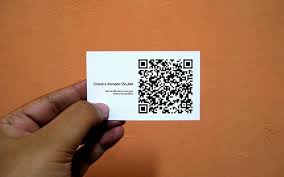Why should an electrical inspector ask to see an electrical worker's licence?
Inspectors have a vital responsibility as the “final step” to verify the safety of high risk electrical work. This responsibility carries a legal obligation to conduct whatever tests and actions are required to ensure the work will be safe and completed in accordance with the regulations, as laid out in Regulation 70 (3) (a) (b).
Furthermore, checking an electrical worker's licence is a no-brainer way to protect you as an electrical inspector. It will help to guard you if something does go wrong with their work. It's easy to do, and the electrical regulations require it.
Confirming a tradesperson is a licensed tradesperson, removes any unnecessary risk and future hassles that could arise by wrongly confirming the work you’re inspecting is compliant, if it turns out it isn't. This will cover you for work that has passed the visual inspection and testing stages of inspection.
What to do
Before beginning an inspection, the inspector should make sure the person is licenced, and allowed to carry-out the work, because if they are not properly licenced, the work is not compliant with the regulations.
Possible outcomes
Your inspection of a tradesperson's work could be used for a complaint or investigation from an insurance company, homeowner or a building contractor. Failure to perform your responsibilities as an inspector, could also result in you being subject to an investigation, which may result in disciplinary action by the Board.
While you may have inspected the work in good faith, non-licenced workers, people working outside their limits of work or false/misleading certificates of compliance may be raised during an investigation and bring your inspection under the spotlight.
If you've checked the person was suitably licensed, completed the proper testing and paper-work, you've covered all bases of the regulations.
Things to remember
Inspectors have a leading safety role in the industry – by asking for a practitioner's licence (which they are obliged to carry at work) and by promoting this practice to the general public, inspectors are able to improve the overall professionalism and electrical safety within the industry. Remember, as part of your professional due diligence, an inspector should remember that:
- The Board requires electrical practitioners to carry a licence while at work.
- Electrical trainees have authorisation cards called trainee limited certificates (TLC).
- Asking to see a person's licence is a good habit.
- Even those you know may not have a current licence or could be subject to limitations, so asking everyone will ensure you aren't discriminating between people you know or don't know.
- The public should be encouraged to check the licence of electrical workers they engage to maintain confidence and promote safety.
How to double-check the licence
 Search the public registrar on the EWRB website; this also holds trainees licence details.
Search the public registrar on the EWRB website; this also holds trainees licence details.- Scan the QR code on the back of the licence using the app on your smart phone or tablet. This will direct you straight to the public register.

